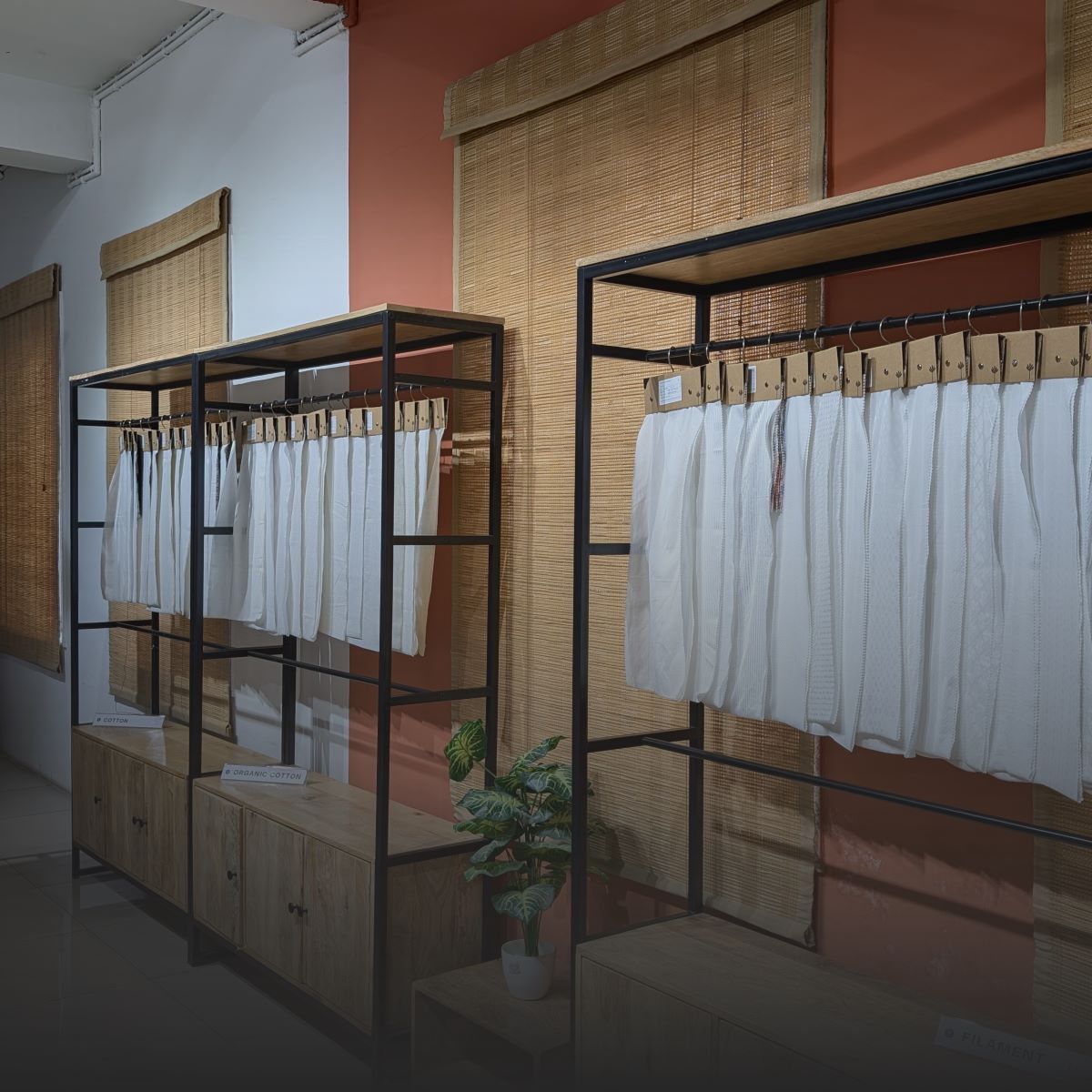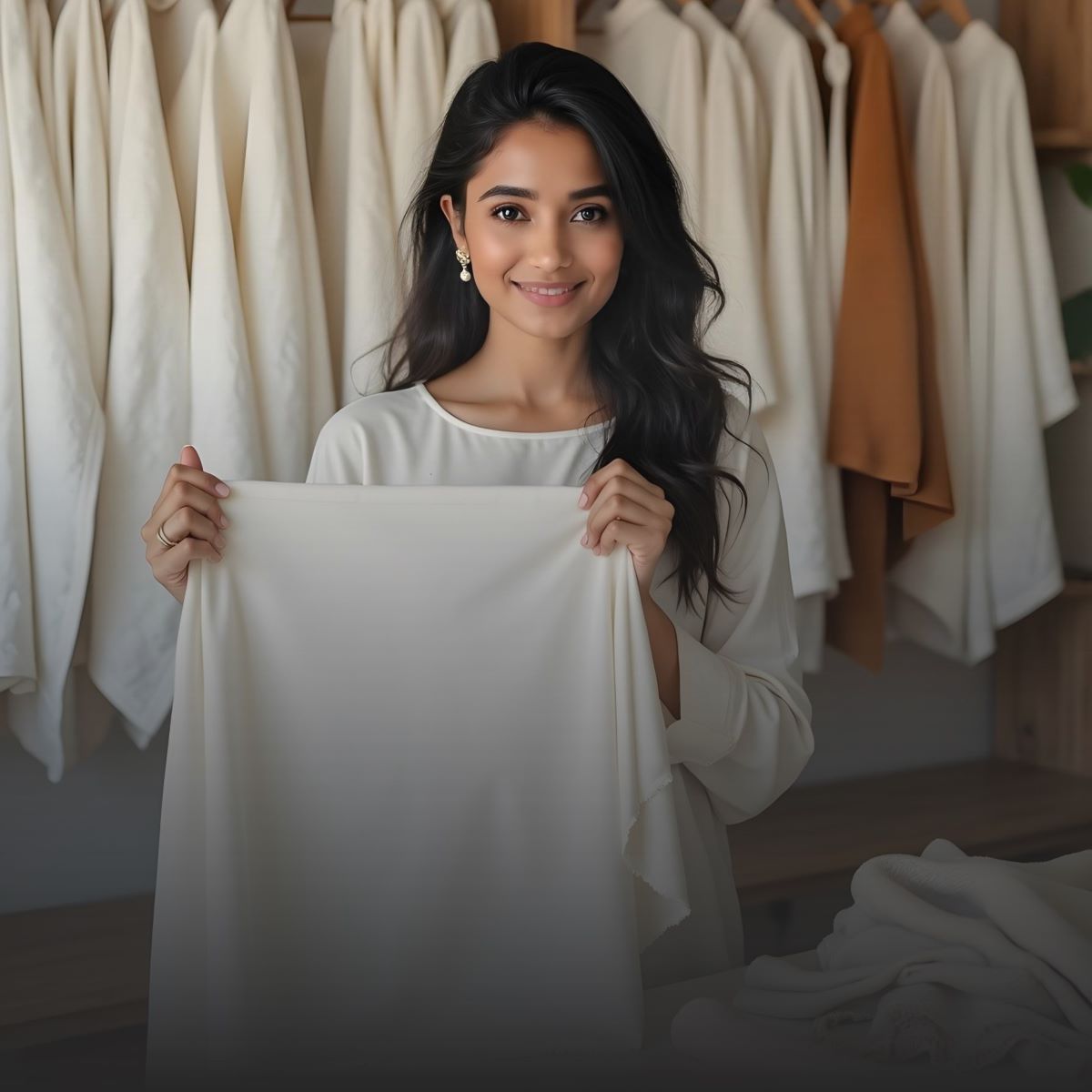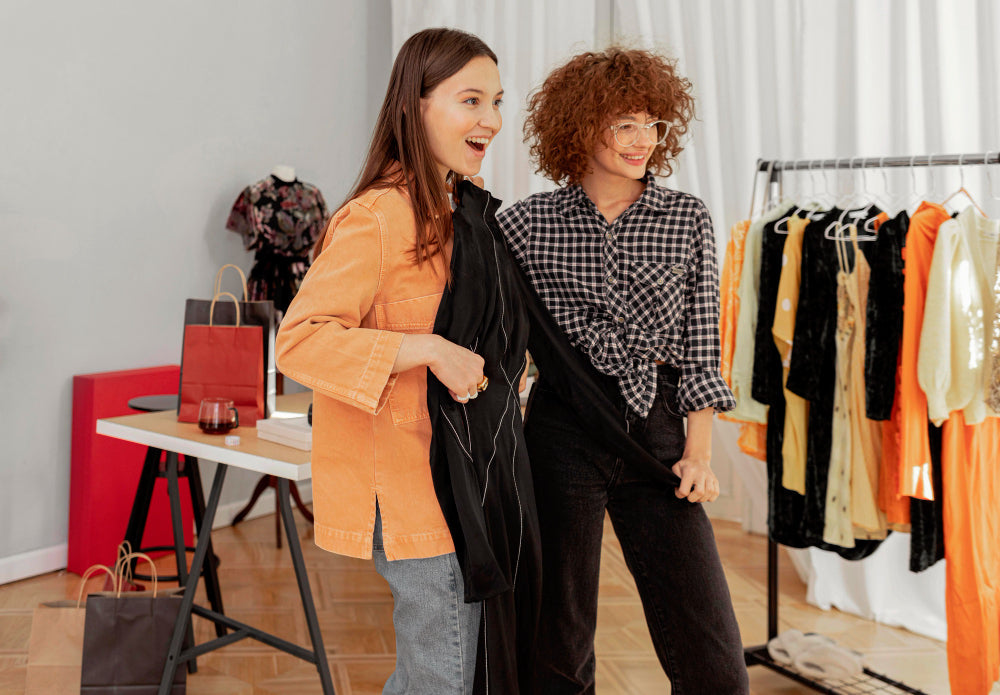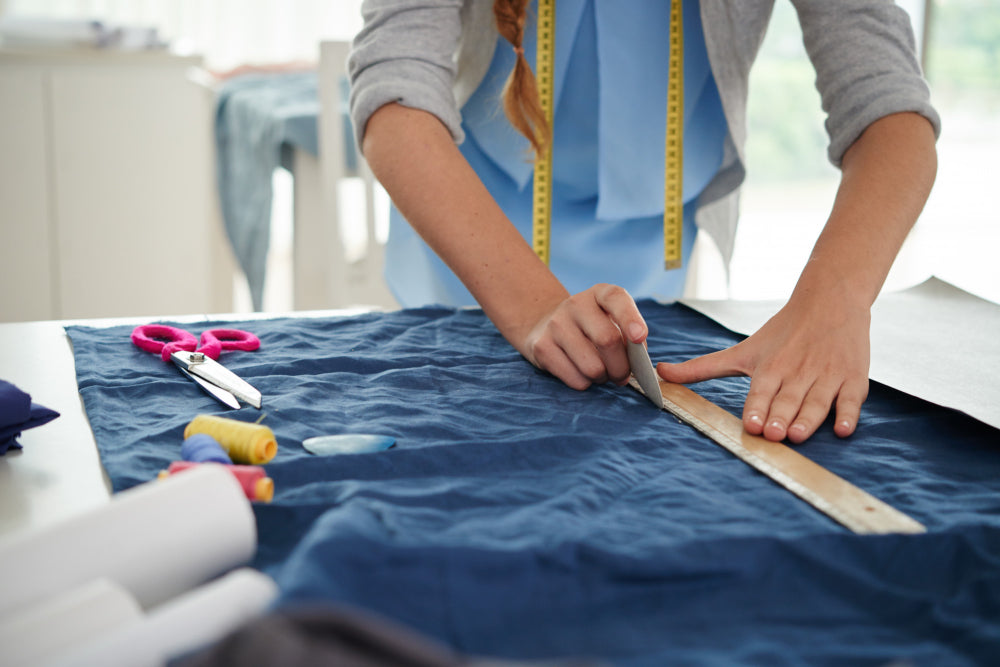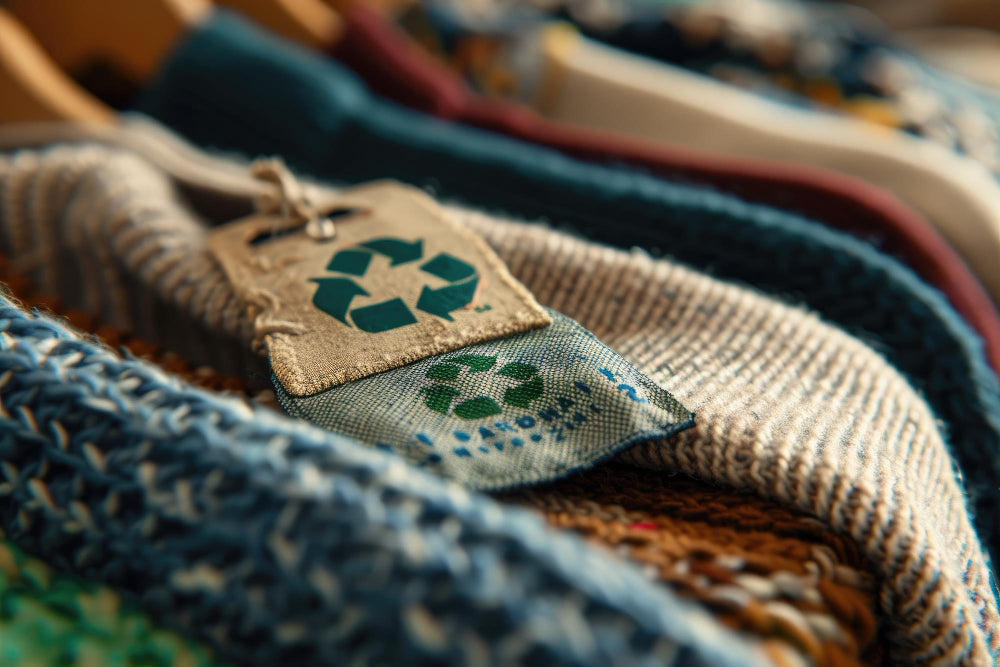The global fashion industry is undergoing a significant shift. Traditional models with high MOQs, long lead times, and mass production no longer suit today's fast-paced, sustainability-driven market.
Today's market looks different. Fashion businesses, startups, and stores are moving toward private label garment manufacturing, where third-party manufacturers make clothing with the buyer's label. This change is a strategic response to industry-wide challenges such as high MOQs, fragmented sourcing, and sustainability expectations.
For manufacturers, this transformation presents a massive opportunity: to become long-term partners for brands seeking speed, flexibility, and creative freedom. In this article, we’ll explore fashion brands’ biggest pain points—and how private label garment manufacturers like Fabriclore are solving them.
Challenges Faced by Fashion Brands Today

Fashion businesses—whether in Europe, the US, UK, or the Middle East—face consistent challenges when sourcing from traditional mills and factories. These challenges explain why private label garment manufacturing in India and Asia is becoming so attractive.
1. High MOQs and Financial Barriers
European and US suppliers often require 500–1000 pieces per style as a minimum. This is not feasible for startups or D2C brands launching small collections. For young labels, high upfront costs create financial risk and overstocking problems. They need low MOQ clothing production to test new designs before committing to large volumes.
2. Long Lead Times
Traditional mills typically operate in cycles of 6–8 months, which is incompatible with the fast-paced nature of fast fashion or seasonal starts. Brands want a partner that can get them samples, tests, and large quantities of goods in weeks, not months.
3. Fragmented Supply Chains
Sourcing fabrics from one supplier, printing from another, and stitching elsewhere creates inefficiencies and delays—a lack of integration results in longer project timelines, higher costs, and varying quality levels.
4. Limited Customization
Many conventional factories offer only basic stitching and finishing. However, modern fashion labels expect fabric sourcing, dyeing, digital printing, embroidery, trims, and packaging—all under one roof.
5. Sustainability Pressure
The European Union's eco-regulations and growing consumer awareness demand that brands work with sustainable clothing manufacturers. Buyers need access to organic cotton, hemp, TENCEL™, recycled polyester, and certified fabrics (GOTS, OEKO-TEX, Fair Trade).
Together, these challenges push fashion brands—big and small—to look for private label clothing manufacturers in India, Bangladesh, and other global hubs that provide a flexible, sustainable, and transparent alternative.
What is Private Label Garment Manufacturing?

Private label garment manufacturing means making clothes with the name of another brand on them. When brands buy in bulk, they have to trade old clothes. But with private label, brands can:
- Create exclusive collections unique to their identity.
- Customise fabrics, colours, and designs for brand differentiation.
- Control packaging, trims, and labelling for a complete brand experience.
- Scale production from low MOQ samples to bulk orders.
For brands, private label means faster entry to market, lower risk, and greater creative freedom. For manufacturers, it means building long-term partnerships with global buyers who value reliability and scalability.
What Fashion Brands Expect From a Reliable Private Label Partner

Fashion firms and corporations seek more than sellers when partnering with private labels. They seek problem-solvers. A good private label garment manufacturer in India or elsewhere should offer:
MOQ Flexibility
Startups and mid-sized labels need low minimum order quantities to test designs. For instance, Fabriclore offers 300 pieces per style, with 50 pieces per size—a model that allows brands to grow without the financial burden of overproduction.
Speed to Market
Fast delivery matters because trend cycles have shortened. Brands can keep up with changing trends with the help of reliable makers who can offer samples within days and bulk production in as little as 30 days.
Fabric Variety and Authenticity
A strong partner offers one-stop fabric sourcing with access to cotton, linen, viscose, silk, polyester, TENCEL™, hemp, organic cotton, and blends. This keeps brands from having to deal with multiple providers.
Customization Options
From digital and screen printing to hand-block printing, indigo dyeing, and embroidery, private label partners must provide tools for unique and premium collections.
Sustainability & Certifications
Certifications like GOTS, OEKO-TEX, and Fair Trade are necessary because eco-friendly customers want more. Fabriclore uses azo-free dyes and eco-friendly production methods to make it feasible to source things in a way that is good for the environment and the people who work there.
Transparent Pricing & Communication
Fashion brands value clarity in both pricing and processes. Features like swatches before bulk, mill-to-brand pricing, digital tracking, and dedicated account managers ensure a seamless buyer experience.
Case Example: How Fabriclore Attracts Fashion Brands

One company that illustrates how private label garment manufacturing can solve these challenges is Fabriclore, a trusted partner for over 500 global brands across Europe, the US, the UK, Australia, and the Middle East.
How Fabriclore Meets Brand Expectations:
- Low MOQ – 300 pcs per style, 50 pcs per size.
- Diverse Product Range – Menswear (shirts, trousers, chinos), womenswear (casual, formal, ethnic fusion), kidswear, and accessories.
- Authentic Fabrics – Cotton, linen, viscose, silk, polyester, TENCEL™, organic cotton, and sustainable blends.
- Customisation at Scale – Digital, screen, and block printing, embroidery, custom trims, and eco-packaging.
- Sampling Support – Swatches and prototypes before bulk production.
- Fast Timelines – Bulk production starting from 30 days.
- Global Delivery – Efficient logistics to Europe, the USA, UK, UAE, and beyond.
- Sustainability Commitment – Eco-friendly fabrics, azo-free dyeing, global certifications.
To become one of the best private label garment manufacturers in India for global brands, Fabriclore has put together experience, flexibility, and transparency.
The Future of Private Label Garment Manufacturing

The demand for customised, sustainable, and tech-enabled private label production will only continue to grow. Fashion businesses are moving away from rigid sourcing models and leaning toward low-MOQ, eco-conscious, globally integrated manufacturers.
In the next decade, private label partnerships will likely dominate fashion sourcing, particularly for European and American fashion startups, D2C brands, and boutique retailers. Manufacturers that can combine sustainability with speed and scalability will lead this transformation.
Conclusion
Private label garment manufacturing is no longer an alternative—it is the new standard for global fashion sourcing. By addressing issues like high MOQs, slow lead times, fragmented supply chains, and sustainability challenges, private label manufacturers create real value for fashion brands.
Fabriclore's model—offering authentic fabrics, low MOQ garment production, sustainable sourcing, and scalable manufacturing—demonstrates how the industry is evolving.
Faster launches, unique collections, and lower risks are what brands get when they choose the right private label partner. Moving from being suppliers to strategic allies in shaping the future of fashion is what it means for fashion brands.

FAQs: Private Label Garment Manufacturing
Q1. What Does Private Label Garment Manufacturing Mean?
Private label garment manufacturing means a brand partners with a manufacturer to produce garments under its own label. Unlike wholesale buying, this model allows custom fabrics, designs, labelling, and packaging, giving brands exclusive collections tailored to their identity.
Q2. Why Do Fashion Brands Prefer Private Label Clothing Production?
Fashion brands prefer private label production because it offers creative freedom without owning a factory. They can test new designs, launch collections quickly, and control branding—while manufacturers handle fabric sourcing, stitching, and finishing.
Q3. What Is The Moq (Minimum Order Quantity) For Private Label Production?
Most traditional mills require 500–1000 pieces per style, but flexible partners like Fabriclore offer 300 pieces per style, with 50 pcs per size. This low MOQ clothing production is ideal for startups and boutique labels.
Q4. What Categories Can Private Label Garment Manufacturers Cover?
Private label garment manufacturers usually cover a broad range of apparel and accessories, allowing brands to build diverse collections under their own label. From everyday basics to fashion-forward designs, the categories span across men's, women's, and kids ' wear, along with lifestyle products.
At Fabriclore, the offering includes:
- Menswear – Shirts, trousers, chinos, loungewear
- Womenswear – Dresses, formalwear, ethnic fusion wear
- Kidswear – Casual wear, activewear, loungewear
- Accessories – Scarves, stoles, scrunchies, bags
- Speciality Segments – Ethnic fusion, sustainable apparel
Q5. How Do Private Label Manufacturers Support Fashion Startups?
Private label manufacturers support startups by offering small-batch production, fabric swatches, prototypes, and sustainable sourcing options. This helps new brands test the market, reduce financial risk, and scale when successful.
Q6. Is Private Label Manufacturing Suitable For Sustainable Fashion Brands?
Yes. Many private label clothing manufacturers now provide organic cotton, hemp, TENCEL™, viscose, and recycled polyester fabrics, along with certifications like GOTS and OEKO-TEX. This makes private label an ideal choice for eco-conscious brands in Europe and the US.
Q7. How Fast Can Private Label Garment Manufacturers Deliver Orders?
Reliable manufacturers can deliver samples in days and bulk production in 30–60 days, depending on the complexity. For example, Fabriclore supports startups with fast timelines to help brands meet seasonal launches.
Q8. Why Choose India For Private Label Garment Manufacturing?
India is a leading hub for authentic fabrics, sustainable fabrics, and low-MOQ production. Compared to European suppliers with high costs, Indian manufacturers offer mill-to-brand pricing, diverse fabrics, and scalable capacity—making them a top choice for global buyers.
We also happen to be a magnet for suggestions, and would love to catch yours….throw us yours on hello@fabriclore.com
